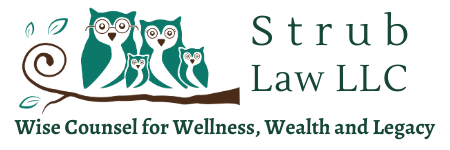Recently, an individual got in touch with me and said he did not need an estate plan, but wanted to make changes to his Power of Attorney.
When he came in to talk to me he showed me his documents that were more than five years old. We discussed what he said he wanted: making changes to his Power of Attorney. Then, I asked if, while he was there, he would like to go over what would happen if he became incapacitated or passed away with his current set of documents.
As we looked at how things would play out with his current documents, he had a number of concerns. Laws have changed and the way Attorneys/Counselors-at-law address certain concerns has evolved. I was able to show him how updated documents would address his concerns – and create a plan that would help to ensure that his vision of how his incapacity and death played out would come to pass.
Even though he thought he did not need an estate plan, he DID. Like many, he probably thought an “estate plan” meant something else. He doesn’t have an estate large enough to be affected by the estate tax. He doesn’t want to do anything fancy with his assets.
He wants a plan for who will make healthcare and financial decisions for him. He also wants to provide guidance to them about the choices they may need to make on his behalf. In addition, he wants his beneficiaries to inherit his assets in a way that supports their best selves (and not have his beneficiaries get their share when they turn 18 or are not financially mature enough to make good choices).
Estate planning is also about facing our fears of death, showing our love for our families, having the peace of mind that our death will not cause conflict in our families, and will not leave our loved ones a messy burden. Rather, we can leave a legacy of love, a legacy of having mattered, a legacy of responsibility and kindness to our loved ones who carry on after us.
